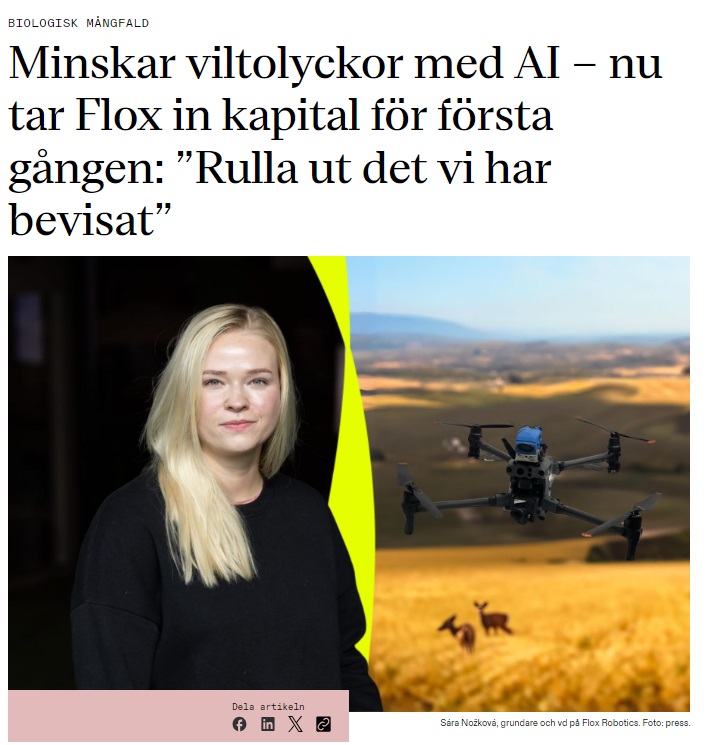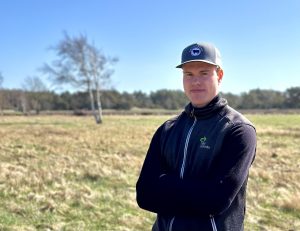Featured in Impact Loop: Minskar viltolyckor med AI – nu tar Flox in kapital för första gången: ”Rulla ut det vi har bevisat” │ Impact Loop
The Swedish startup company FLOX Robotics has gained three new partners. The capital will enable the roll-out of new hardware and strengthen the organization for international customer projects.
The company was founded at the end of 2020 and has so far been able to build up its business with the help of early customer projects and funds from Vinnova and the EU. For the first time, they are now bringing in three new owners in a capital round. E4 Invest II, Almi Invest and Argand Partners are joining the company.
To an uninitiated observer, it may seem that FLOX Robotics’ solutions are mainly suitable for private landowners who want to avoid the deer eating the wrong crops or the geese pooping on the pubic beaches. But Sara Nozkova points out that, in principle, they have invested exclusively in a few larger customers, such as Swedavia, the City of Stockholm, the Swedish Transport Administration and the mining company Boliden. In the first place, it is about there being a lot of money to save. According to the Swedish Transport Administration, a train collision with a moose can cost close to SEK 1.2 million. For aircraft that collide with birds, the sum can be tenfold. ”For most of our customers, it is mainly about finances, security and compliance. Then there are others who see great value in protecting natural resources such as crops or newly planted forest. That is why we are working with, among other things, the Swedish Agricultural Agency and soon we will start tests with the forest company Holmen in various projects.”
With drones equipped with Flox technology, the company can expand by protecting the animals around Swedavia’s airports. Tests have already been carried out in Malmö and Kiruna. During April, Umeå awaits.
”After that, we are ready to go out commercially on more markets, above all together with airports and municipalities.”
However, it is the stationary solution that has the greatest immediate potential for rapid scale-up, she believes. A new version is under development, and the capital injection should enable rollout in the spring of 2025, with sales and marketing. ”Our first stationary unit was electrically connected, but now we are developing a variant that is powered by a rechargeable battery. This means that we can offer our services for larger areas, such as nature parks.” Despite large customers, many of the projects so far have mainly aimed to prove the utility and usability. Now, says Sara Nozkova, the time is ripe for wider commercialization – and readiness for foreign expansion. ”We have chosen investors who have relevant experience and can help us move forward. Now we will be able to reach out significantly more – and take on all the projects for which we did not have the capacity before. Do you need to strengthen the organization as well? ”Absolutely. We are currently recruiting a sales manager, and will hire several developers, preferably engineers in AI and robotics.”




